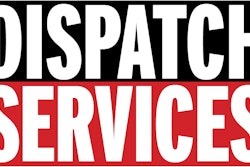Previously in this series: Highway robbery: Ask the tough questions during negotiations to root out the crooks
In addition to the previously discussed “red flags” that ought to give any owner-operator pause during broker negotiations, one would do well to consider the following warning signs invitations to get more information from any broker.
UNDERESTIMATED MILEAGE. If you call on a load posted as running between two major cities but actual delivery addresses are well beyond the boundaries of those cities, “that’s a small red flag for me,” says independent Chad Boblett. “So they’re lying about the locations. What else? I know not every single broker is lying when they give out the mileage, but it’s never correct. They’re wrong every single time, and every single time they’re wrong, they’re undercounting.”
Double-check mileage, he adds. “Google Maps is your friend as an owner-operator. Don’t worry about it being a truck-friendly program. You know where you can and can’t go.”
 Chad Boblett founded the Rate Per Mile Masters Facebook group for rates/owner-operator business discussion.
Chad Boblett founded the Rate Per Mile Masters Facebook group for rates/owner-operator business discussion.‘THE LOAD IS READY NOW.’ If you get this response to your queries about appointment times, Boblett says, get more information. “Does that mean I’m already late? If I’m going to be a work-in, that means I could be sitting there until they take care of all the appointments, and they’re probably going to be pissed-off at me and treat me like” you-know-what. “I don’t like doing it, but my rate will reflect it if I’m going to be a work-in.”

MULTIPLE BROKERS. Double-brokering is when a broker takes a load from another broker without the lead broker knowing he’s actually dealing with another broker. It’s one of those quasi-fraudulent practices that most above-board brokerages recommend against, though it happens.
Future blockchain advances in digital brokering, providing more open records of every part of the transaction, eventually could help prevent this practice, say blockchain boosters. But in the meantime, “cobrokering,” where the same happens but contractual requirements are agreed to between the brokers, is “running rampant” today, says Boblett.
In addition to the infuriating aspect of even more hands in the cookie jar, there’s the matter of basic knowledge to do the job at hand. Boblett tells the story of a broker friend who got burned in what became a cobrokering arrangement, thinking he was dealing with a carrier agent who was going to put the load on one of the carrier’s trucks. But the agent farmed the haul out to a subagent. The subagent put a solo driver on what needed to be a team load and destroyed the broker’s rep with his shipper.
“I use a broker because it’s easier for me to not have to babysit a shipper,” Boblett says. “I want a broker doing their job — they have to share equal responsibility for me as their customer and the shipper as their other customer. The reason why I need that equal responsibility? If I have a load claim, I’m going to the middleman for assistance.”
Next in this series: Highway robbery: A clouded transparency











